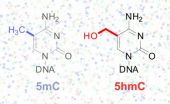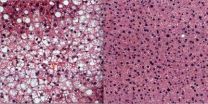(Press-News.org) ANN ARBOR, Mich.--- Across history and cultures, religion increases trust within groups but also may increase conflict with other groups, according to an article in a special issue of Science.
"Moralizing gods, emerging over the last few millennia, have enabled large-scale cooperation and sociopolitical conquest even without war," says University of Michigan anthropologist Scott Atran, lead author of the article with Jeremy Ginges of the New School for Social Research.
"Sacred values sustain intractable conflicts like those between the Israelis and the Palestinians that defy rational, business-like negotiation. But they also provide surprising opportunities for resolution."
As evidence for their claim that religion increases trust within groups but may increase conflict with other groups, Atran and Ginges cite a number of studies among different populations. These include cross-cultural surveys and experiments in dozens of societies showing that people who participate most in collective religious rituals are more likely to cooperate with others, and that groups most intensely involved in conflict have the costliest and most physically demanding rituals to galvanize group solidarity in common defense and blind group members to exit strategies. Secular social contracts are more prone to defection, they argue. Their research also indicates that participation in collective religious ritual increases parochial altruism and, in relevant contexts, support for suicide attacks.
They also identify what they call the "backfire effect," which dooms many efforts to broker peace. In many studies that Atran and Ginges carried out with colleagues in Palestine, Israel, Iran, India, Indonesia and Afghanistan, they found that offers of money or other material incentives to compromise sacred values increased anger and opposition to a deal.
"In a 2010 study, Iranians who regarded Iran's right to a nuclear program as a sacred value more violently opposed sacrificing Iran's nuclear program for conflict-resolution deals involving substantial economic aid, or relaxation of sanctions, than the same deals without aid or sanctions," they write. "In a 2005 study in the West Bank and Gaza, Palestinian refugees who held their 'right of return' to former homes in Israel as a sacred value more violently opposed abandoning this right for a Palestinian state plus substantial economic aid than the same peace deal without aid."
This dynamic is behind the paradoxical reality that the world finds itself in today: "Modern multiculturalism and global exposure to multifarious values is increasingly challenged by fundamentalist movements to revive primary group loyalties through greater ritual commitments to ideological purity."
But Atran and Ginges also offer some insights that could help to solve conflicts fueled by religious conviction. Casting these conflicts as sacred initially blocks standard business-like negotiation tactics. But making strong symbolic gestures such as sincere apologies and demonstrations of respect for the other's values generates surprising flexibility, even among militants and political leaders, and may enable subsequent material negotiations, they point out.
"In an age where religious and sacred causes are resurgent, there is urgent need for joint scientific effort to understand them," they conclude. "In-depth ethnography, combined with cognitive and behavioral experiments among diverse societies (including those lacking a world religion), can help identify and isolate the moral imperatives for decisions on war or peace."
### Atran is also affiliated with Centre National de la Recherche Scientifique−Institut Jean Nicod, Paris, and with the John Jay College of Criminal Justice at the City University of New York.
Established in 1949, the University of Michigan Institute for Social Research (ISR) is the world's largest academic social science survey and research organization, and a world leader in developing and applying social science methodology, and in educating researchers and students from around the world. ISR conducts some of the most widely-cited studies in the nation, including the Thomson Reuters/University of Michigan Surveys of Consumers, the American National Election Studies, the Monitoring the Future Study, the Panel Study of Income Dynamics, the Health and Retirement Study, the Columbia County Longitudinal Study and the National Survey of Black Americans. ISR researchers also collaborate with social scientists in more than 60 nations on the World Values Surveys and other projects, and the Institute has established formal ties with universities in Poland, China, and South Africa. ISR is also home to the Inter-University Consortium for Political and Social Research (ICPSR), the world's largest digital social science data archive. Visit the ISR Web site at http://www.isr.umich.edu for more information.
Religion is a potent force for cooperation and conflict, research shows
2012-05-18
ELSE PRESS RELEASES FROM THIS DATE:
Google goes cancer: Researchers use search engine algorithm to find cancer biomarkers
2012-05-18
The strategy used by Google to decide which pages are relevant for a search query can also be used to determine which proteins in a patient's cancer are relevant for the disease progression. Researchers from Dresden University of Technology, Germany, have used a modified version of Google's PageRank algorithm to rank about 20,000 proteins by their genetic relevance to the progression of pancreatic cancer. In their study, published in PLoS Computational Biology, they found seven proteins that can help to assess how aggressive a patient's tumor is and guide the clinician ...
Researchers reveal an RNA modification influences thousands of genes
2012-05-18
###
Weill Cornell Medical College
Weill Cornell Medical College, Cornell University's medical school located in New York City, is committed to excellence in research, teaching, patient care and the advancement of the art and science of medicine, locally, nationally and globally. Physicians and scientists of Weill Cornell Medical College are engaged in cutting-edge research from bench to bedside, aimed at unlocking mysteries of the human body in health and sickness and toward developing new treatments and prevention strategies. In its commitment to global health and ...
Untangling the development of breast cancer
2012-05-18
In two back-to-back reports published online on 17 May in Cell, researchers have sequenced the genomes of 21 breast cancers and analysed the mutations that emerged during the tumours' development. The individual results are described below.
Led by researchers from the Wellcome Trust Sanger Institute, the team created a catalogue of all the mutations in the genomes of the 21 cancer genomes and identified the mutational processes that lead to breast cancer. They found that these mutations accumulate in breast cells over many years, initially rather slowly, but picking up ...
Resolving the ortholog conjecture
2012-05-18
Researchers at the SIB Swiss Institute of Bioinformatics and the EMBL-European Bioinformatics Institute have confirmed the long-held conjecture that studying the genes we share with other animals is a viable means of extrapolating information about human biology. The study, published in the open access journal PLoS Computational Biology, shows how bioinformatics makes it possible to test the conjecture.
Scientists have long looked to model species – mice, for example – to understand human biology. This is at the root of what is called the 'ortholog conjecture': the idea ...
New technique reveals unseen information in DNA code
2012-05-18
Imagine reading an entire book, but then realizing that your glasses did not allow you to distinguish "g" from "q." What details did you miss?
Geneticists faced a similar problem with the recent discovery of a "sixth nucleotide" in the DNA alphabet. Two modifications of cytosine, one of the four bases that make up DNA, look almost the same but mean different things. But scientists lacked a way of reading DNA, letter by letter, and detecting precisely where these modifications are found in particular tissues or cell types.
Now, a team of scientists from the University ...
Salk study may offer drug-free intervention to prevent obesity and diabetes
2012-05-18
VIDEO:
This is an interview with Dr. Panda.
Click here for more information.
LA JOLLA, CA----It turns out that when we eat may be as important as what we eat. Scientists at the Salk Institute for Biological Studies have found that regular eating times and extending the daily fasting period may override the adverse health effects of a high-fat diet and prevent obesity, diabetes and liver disease in mice.
In a paper published May 17 in Cell Metabolism, scientists from Salk's ...
We can learn a lot from other species
2012-05-18
Researchers at the SIB Swiss Institute of Bioinformatics and the EMBL-European Bioinformatics Institute have confirmed the long-held belief that studying the genes we share with other animals is useful. The study, published today in the open access journal PLoS Computational Biology, shows how bioinformatics makes it possible to test the fundamental principles on which life science is built.
Studying genes helps life science researchers understand how our bodies work and how diseases progress. Scientists have long looked to model species – mice, for example – to understand ...
Technology convergence may widen the digital divide
2012-05-18
Technology is helping communication companies merge telephone, television and Internet services, but a push to deregulate may leave some customers on the wrong side of the digital divide during this convergence, according to a Penn State telecommunications researcher.
"Moving away from copper lines is an example of abandoning obsolete technology and embracing technology that is faster, better, cheaper and more convenient," said Rob Frieden, Pioneers Chair in Cable Television and professor of telecommunications and law. "But the risk is that we may be creating a digital ...
In chemical reactions, water adds speed without heat
2012-05-18
MADISON – An international team of researchers has discovered how adding trace amounts of water can tremendously speed up chemical reactions—such as hydrogenation and hydrogenolysis—in which hydrogen is one of the reactants, or starting materials.
Led by Manos Mavrikakis, the Paul A. Elfers professor of chemical and biological engineering at the University of Wisconsin-Madison, and Flemming Besenbacher, a professor of physics and astronomy at the University of Aarhus, Denmark, the team published its findings in the May 18 issue of the journal Science.
Hydrogenation ...
Weight management in pregnancy with diet is beneficial and safe and can reduce complications
2012-05-18
For pregnant women, including those who are overweight and obese, following a healthy calorie controlled diet during pregnancy is safe and can reduce the risk of serious complications such as pre-eclampsia, diabetes and premature birth, finds a study published on bmj.com today.
In the UK, more than half the women of reproductive age are overweight or obese, and across Europe and the US, up to 40% of women gain more than the recommended weight in pregnancy. Excessive weight gain during pregnancy is associated with a number of serious health problems.
Pregnancy is thought ...

